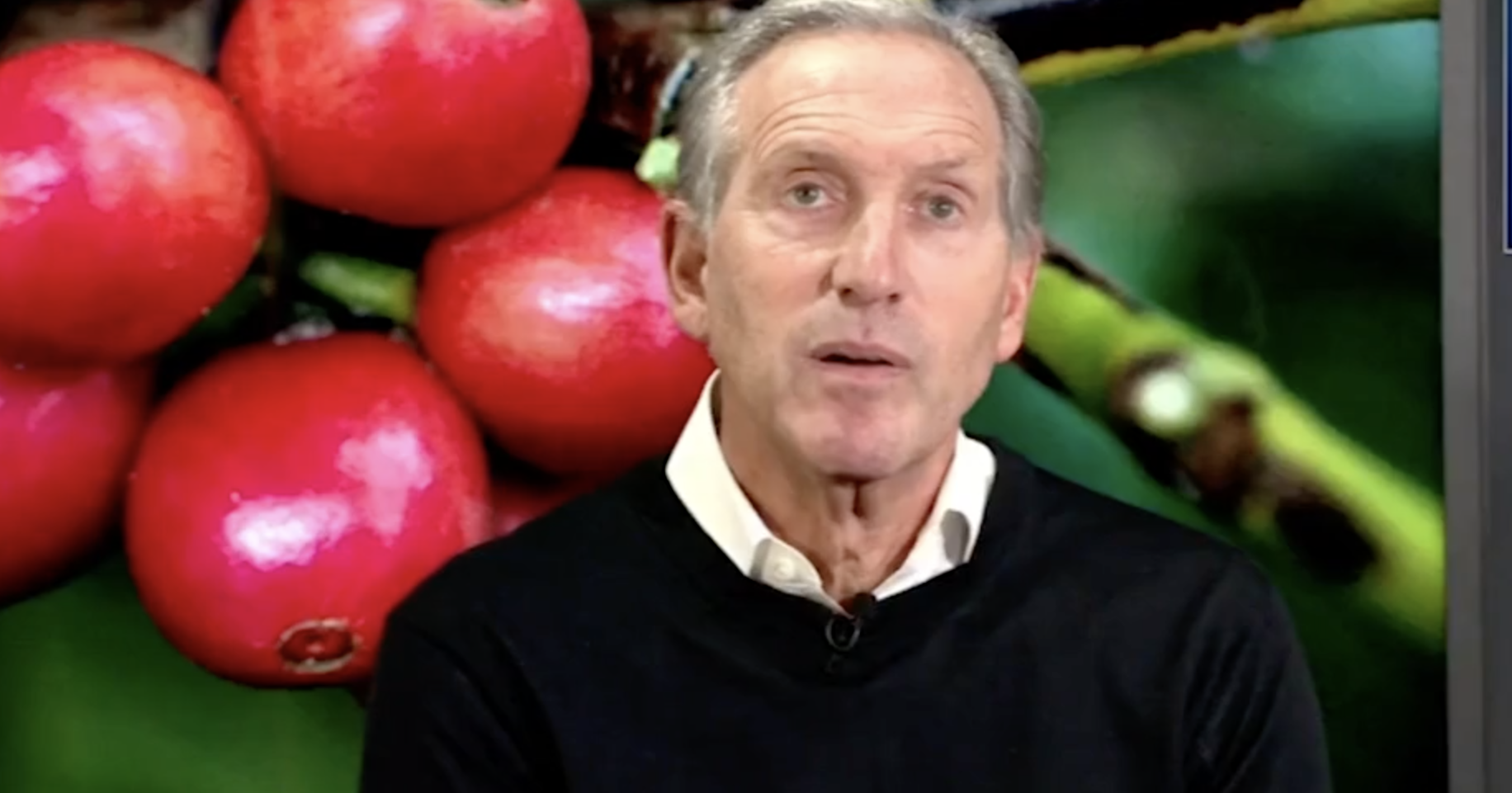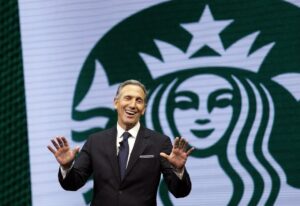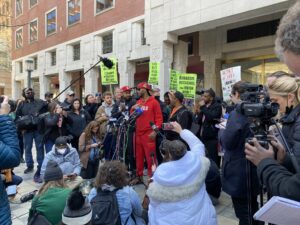by Jordan Zakarin
Amid a growing union drive, Starbucks founder Howard Schultz last week implored the company’s local and regional managers to more actively intervene in the organizing process and repeatedly denigrated the baristas behind Starbucks Workers United.
Schultz’s remarks came during an hour-long video conference, a recording of which was obtained by More Perfect Union. Schultz recently returned to the company to combat the organizing drive, which has won unions at 25 stores and filed for elections at over 200 more.
Seated alongside several other executives, the billionaire CEO blasted the hourly workers as “some outside force” and alleged that they are “trying desperately to disrupt our company.” Schultz grew agitated when railing against the young baristas who he claimed sought to “dictate or disrupt what we are and who [we] are.”
Schultz and other officials punctuated their complaints about the organizing workers with frequent appeals to managers to insert themselves in the organizing process. Schultz declared that “it’s an American right of workers not to unionize and to [instead] embrace the values and the culture of his or her company.”
Schultz urged managers to communicate anti-union talking points to workers in their stores — to “encourage them to understand what it would really mean to vote for a union” — and said it was “critically important” that everyone voted. Moments later, he made a vague accusation that Starbucks Workers United had tried to silence the same workers who the company has forced into countless captive audience meetings.
“Now, there are stories — I wasn’t there — but there are stories that people potentially had been bullied not to vote,” Schultz said, providing no further information before moving on.
Rossann Williams, the company’s president for North America, also spoke throughout the meeting. She informed managers that it is “your number one responsibility” to persuade store employees to vote and convey the company’s messaging. “Please do your role as a store manager, make sure your partners get balanced information about what’s going on, especially in this role of us union-busting all over the country,” she said.
Williams spent last fall in Buffalo, NY, spearheading an intensive response aimed at stopping the Starbucks Workers United union drive before it could hold a single election. At the meeting, she pleaded with attendees to ignore the frequent online posts from workers struggling under heavy-handed management.
“Please, partners, don’t believe everything you see in social media,” Williams said. “For those of you that have reached out, it’s heartbreaking. It’s heartbreaking for me to see and hear how some partners are talking about the company that I love. It’s heartbreaking to hear those that don’t know who we are saying things that I know not to be true.
“All of us are watching social media,” she continued, “and all the stories that are coming out, and the tweets that are coming out… the stories that I know personally, I have been in those stores with those partners, I have not seen some of the stories that people are saying are truth.”
During her four months in Buffalo, WIlliams was regularly photographed inside stores, cleaning carpets and holding meetings alongside an armada of out of state managers that were flown into western New York to serve as “support managers” between September and December.
As More Perfect Union documented throughout those months, the company regularly shut down stores, isolated new workers, held captive audience meetings, and subjected workers to a barrage of emails, texts, and videos with anti-union rhetoric. In the meeting, Williams claimed that “there was no union-busting going on there,” an assertion that Starbucks has repeatedly made but failed to explain despite consistent requests for comment made by More Perfect Union.
Schultz, who has publicly battled with unions since the 1980s, acknowledged a national shift in workers’ expectations over the past year, which has seen a spike in strike actions, new union organizing campaigns, and public support for labor unions.
“Clearly, there’s been a sea change in the country with regard to worker rights, recognition that so-called ‘workers’ need and and require and should have,’” he said.
When he returned to Starbucks at the beginning of April, Schultz told employees in a town hall that the company was “being assaulted in many ways by the threat of unionization.”
Throughout the leaked call, he gave vague details about ongoing meetings he’s been holding with store workers across the country. According to Schultz, these “co-creation” sessions have helped him ascertain the issues facing workers in Starbucks’s nearly 9,000 company-run U.S. stores. He did not mention a tense incident with a pro-union worker during a session held in Long Beach, CA.
On Tuesday evening, the NLRB filed a third lawsuit against Starbucks for its treatment of pro-union workers in a Phoenix, AZ store over the past four months. Starbucks Workers United has filed more than 80 unfair labor practice complaints against the company.



